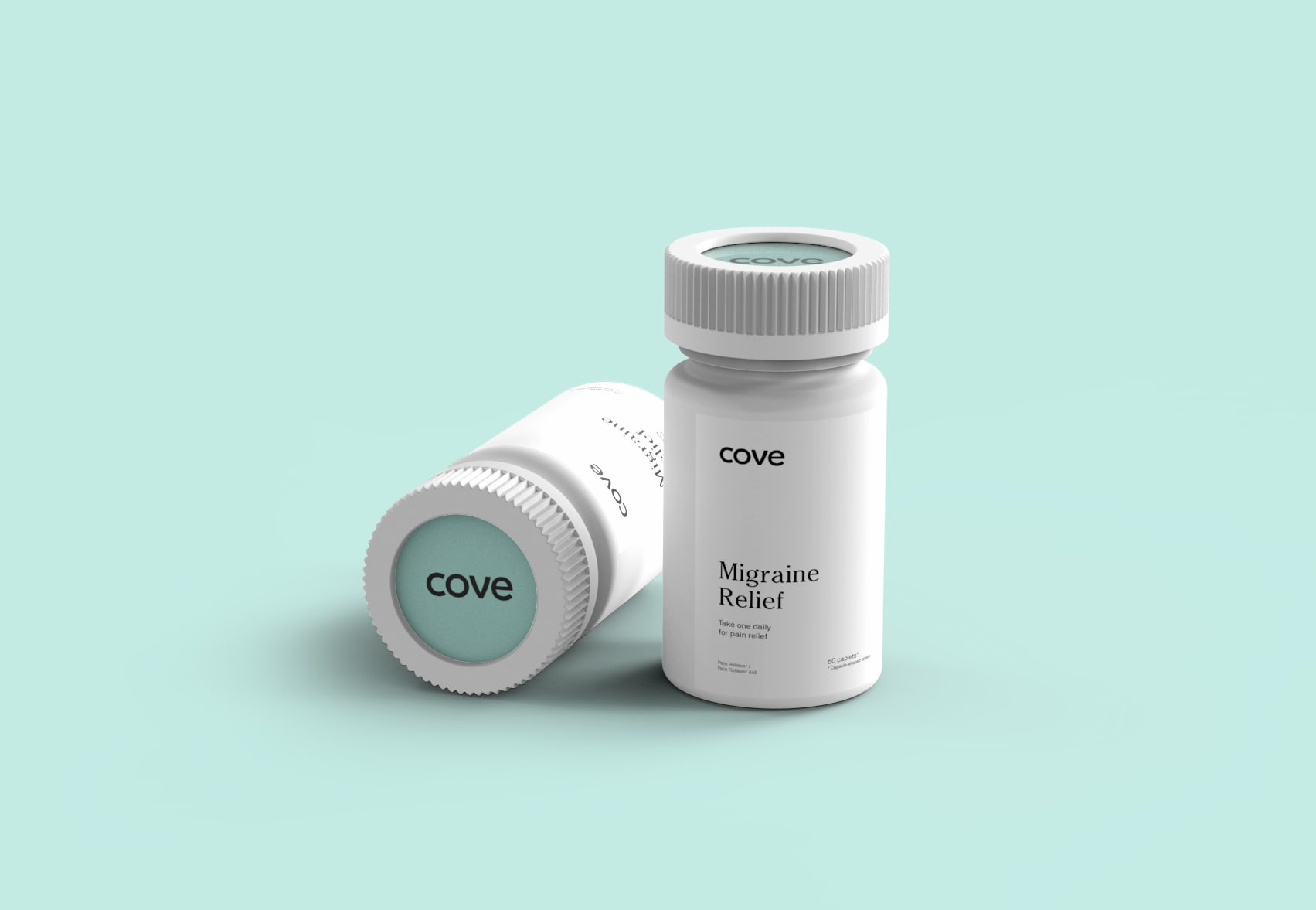This article was updated on March 19, 2020 to reflect new information from the World Health Organization.
The news about COVID-19 is unfolding rapidly, and it can feel pretty overwhelming. Plus, if you’re someone who’s managing a chronic condition like migraine, there are probably even more questions on your mind.
While there’s a lot that’s uncertain about the current situation, here’s what we know so far about some common questions we’ve been hearing from the Cove community.
Should I stop taking ibuprofen for my migraine?
There have been a few reports about some healthcare officials’ response to the coronavirus, and their recommendation to avoid some nonsteroidal anti-inflammatory drugs (NSAIDs), like ibuprofen as a method for treating symptoms of the virus.
Sources are saying that for some patients who were showing signs of the COVID-19, taking ibuprofen made their symptoms worse. While the World Health Organization (WHO) had previously advised against the use of ibuprofen for treating symptoms of the coronavirus, they've since updated their recommendation and are no longer suggesting that patients avoid it.
According to their latest statement, the WHO is "consulting with physicians treating COVID-19 patients and are not aware of reports of any negative effects of ibuprofen, beyond the usual known side effects that limit its use in certain populations."
In fact, neurologist and migraine expert Dr. Cristina Wohlgehagen, MD even recommends NSAIDs as an option to relieve any attacks you might get after receiving a COVID-19 vaccine.
Because COVID-19 is so new, medical experts are still learning about it, and there’s not much data to back up how anyone suffering from the virus will respond to certain medications. If you’re wondering if ibuprofen is the right treatment for your migraine, it’s best to speak with your medical provider.
What about using other NSAIDs to treat symptoms?
There are other NSAIDs besides ibuprofen, including naproxen (generic Aleve®, Anaprox®, Naprelan®, and Naprosyn®), aspirin, (generic Advil® and Motrin®), and celecoxib (generic Celebrex®).
While NSAIDs are considered to be safe drugs, it’s best to take them sparingly to avoid side effects—a general rule of thumb is not to take them more than two days a week.
Unfortunately, given the lack of evidence related to how they work to treat symptoms of the coronavirus, and because every patient’s needs are different, it’s tough to tell if someone should stop taking these medications if they’re experiencing symptoms. Be sure to speak with your medical provider for more guidance if you have any questions.
What other acute treatments are available to help treat my migraine?
The good news is that there are several other treatment options besides NSAIDs that can provide fast pain relief when you have a migraine headache.
Triptans are an FDA-approved prescription medication that help relieve migraine symptoms.
They most commonly come in three forms: oral pills, nasal sprays, and shots. However, other forms, such as a suppository and a skin patch, do exist. Cove offers five generic oral triptans for migraine headaches.
If you’d prefer a drug-free option, Nerivio™ is a smartphone-controlled therapeutic wearable device that works to relieve symptoms by regulating neural activity in the brain. It can even help stop an attack altogether.
These are just a few of the options for acute pain relief. As always, your medical provider is the best resource for helping you find the treatment plan that’s right for your unique migraine journey.
We know this is a lot of information about a topic that’s still evolving every day. If you’re feeling a bit anxious about the news surrounding COVID-19, here are a few stress management tips that may help as we navigate this together.
The information provided in this article is not a substitute for professional medical advice, diagnosis, or treatment. You should not rely upon the content provided in this article for specific medical advice. If you have any questions or concerns, please talk to your medical provider.
Naproxen is an oral medication used to ease pain, swelling, and fever. This drug may raise the chance of heart and blood vessel side effects like heart attack and stroke. If these happen, they can be deadly. The risk of these side effects may be greater if you have heart disease or risks for heart disease. However, the risk may also be raised in people who do not have heart disease or risks for heart disease. The risk of these health problems can happen as soon as the first weeks of using this drug and may be greater with higher doses or with long-term use. This drug may raise the chance of very bad and sometimes deadly stomach or bowel side effects like ulcers or bleeding. The risk is greater in older people. The risk is also greater in people who have had stomach or bowel ulcers or bleeding before. These problems may occur without warning signs. If you are pregnant or you get pregnant while taking this drug, call your medical provider right away. Tell your medical provider if you are breast-feeding. You will need to talk about any risks to your baby. You can read more about naproxen’s side effects, warnings, and precautions here. Full prescribing information for naproxen is available here.
Nerivio should not be used by people with congestive heart failure, severe cardiac or cerebrovascular disease, or uncontrolled epilepsy. Nerivio should not be used by anyone with active implantable medical devices (e.g. pacemaker, hearing aid implant). It should only be applied on the upper arm over dry, healthy skin with normal physical sensation. Nerivio should not be used directly over or in close proximity to any metallic implants or cancerous lesions. Nerivio has not been evaluated in pregnancy or those under the age of 18. For full use instructions and safety information, please see the Nerivio User Manual. Click here for the QuickStart guide.
Photo by Laurynas Mereckas on Unsplash


